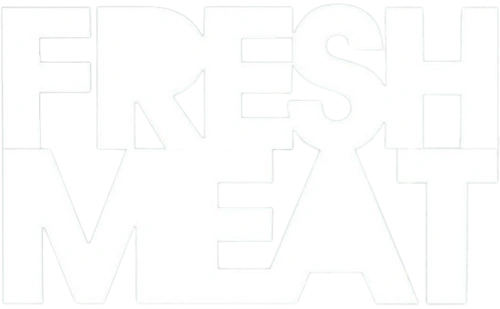Fresh Meat is a British sitcom and award-winning series created by Jesse Armstrong and Sam Bain, who also created Peep Show. The first episode, directed by David Kerr, was broadcast on Channel 4 on 21 September 2011, and aired on Wednesdays at 10 pm.
Summary[]
The stories revolve around the lives of six students – Vod, Oregon, Josie, Kingsley, JP and Howard – who are freshers (with the exception of Howard) at the fictional Medlock University (loosely based on the University of Manchester). They live in a shared house off-campus in Rusholme rather than university halls of residence, due to their late application.
Main themes include: Oregon's insecurity and failed relationship with her English literature lecturer, Tony Shales; Vod's hedonistic, carefree lifestyle; Josie and Kingsley's tortured relationship; upper-class JP's attempts at popularity and impressing girls, and Howard's many eccentricities. On a larger scale, the series covers such student-related issues as financial issues, work pressures, grades, expulsion, partying, and internship competition. The final series involves job seeking, final exam pressure and the value of degrees.
Production[]
Jesse Armstrong and Sam Bain created Fresh Meat's characters and wrote the first episode whilst watching The Young Ones on VHS; subsequent episodes were written by other writers. Bain has explained the reasons for this approach: "We always imagined this as a team-written show partly for practical reasons because Peep Show has been recommissioned, and moving forward if we're lucky enough to get another series of Fresh Meat we simply couldn't write two shows at once. So we always knew we wanted to bring other writers on board, some are more experienced, some very talented women writers, and one who had just graduated when we started writing."
Fresh Meat is produced by Liverpool-based Lime Pictures and London-based Objective Productions. The programme was filmed at The Sharp Project in Manchester, a £16.5 million studio facility built to fill the void when Granada Studios closed in 2013. The programme is set in Manchester, and some location scenes are filmed on the campus of the real life Manchester Metropolitan University (close to the River Medlock) – including scenes set within the students' union, which are filmed in the students' union of Manchester Metropolitan University. Scenes in the characters' local pub are filmed at the King's Arms in Salford. Many exterior shots were filmed at the University of Manchester's main Oxford Road campus – particularly outside the library – and in series 2, the University of Salford's library and many exterior parts of the campus were used as a set. 28 Hartnell Avenue, the Victorian house in which the students live, is in fact 28 Mayfield Road in Whalley Range, Manchester.
Channel 4 announced that a second series had been commissioned in October 2011. Filming was completed in August 2012, and the series started broadcasting that following October. A third series was confirmed via Twitter following the second series' finale. Filming of Series 4 began in March 2015 and wrapped on 28 May 2015.
Reception[]
Critical reaction to the first series' opening episodes was mixed, with reviews becoming more positive as the series progressed. The Guardian gave the opening episode a very positive review, finding it "sharp" and "refreshingly gag-dense". The Independent's review was also positive, saying "what really holds the thing together is an underlying sympathy, the sense that these characters might be comically foolish but they aren't (with some exceptions) contemptible."
However, Michael Deacon in The Daily Telegraph called the opening episode's script "a torrent of prattling self-hatred" and found the episode "drainingly bleak". Rupert Christiansen, also in the Telegraph, was similarly unimpressed, calling it "[p]athetically laboured and over-acted" and "limply written and predictable". Rachel Cooke of New Statesman felt the opening episode was a "damp squib" and commented that this might be because "the writers failed to remember that going to university is also rather melancholic, what with all the loneliness, the strange and soon-to-be-shed new friends and the general exhaustion of trying to act cool and grown-up".
By the end of the first series, the Radio Times said the show had been "full of well-worked plotlines and gorgeous character comedy", and The Daily Telegraph praised "the series' admirable habit of stirring pathos into the flow of gags" as well as complimenting the scripts and performances. The Guardian felt it had "managed to live up to sky-scraping expectations", and Metro said "Originally billed as a university version of The Inbetweeners, Fresh Meat has developed into something much more sophisticated than its more-established sibling."
The second series continued to receive positive reviews, with The Observer declaring the second episode "almost an hour of laugh-out-loud comic astuteness that single-handedly restored faith in the British ability to be funny", while The Independent on Sunday said "First time round, the student sitcom was chipper but clunky fare. But, just as its fresher gang have grown up, so the whole thing has become sharper, wiser, and more lovable".
The third series also continued to receive positive reviews. Andrew Collins of The Guardian identified some similarities between Fresh Meat and The Young Ones, but he suggested that "to say that Fresh Meat is a Young Ones for the Jägerbomb generation does neither show justice" and said "The Young Ones was like being picked up by the lapels and repeatedly shaken. Fresh Meat is more like being invited to stay". Collins also recognised Jack Whitehall's performance as J.P. and refuted Jonathan Ross's quip at the British Comedy Awards that, as an actor, Whitehall has "less range than a North Korean missile", adding that Whitehall's performance deepens with each episode.
















